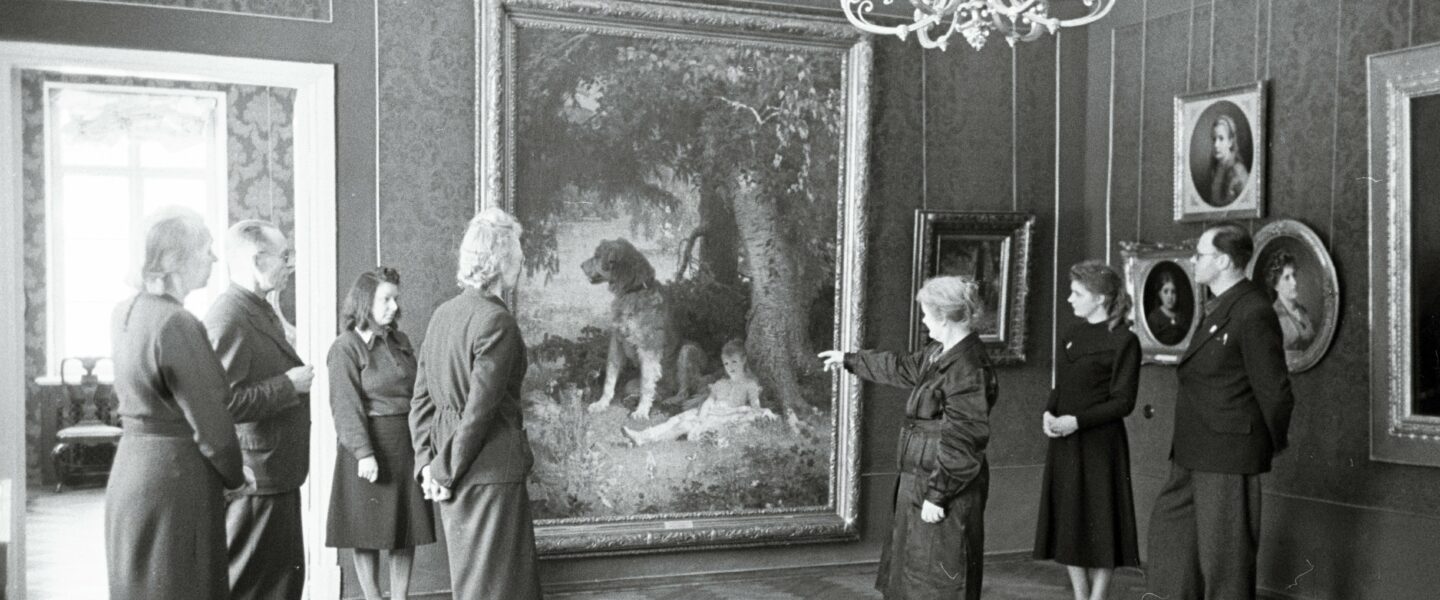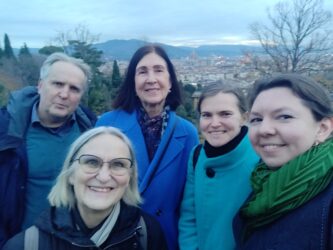
Discussion of the jubilee exhibition of Johann Köler at the Art Museum of Estonia, Kadriorg Palace. Photo: V. Gorbunov, 1951. Estonian Film Archives.
The project “Art Historical Contact Zones: Popular and Fictional Mediations of Art History in Estonia” explores the relationship between art history and the public sphere – the non-academic forms that art writing can take: various fiction and film genres, popular contributions in mass media, correspondence, visual narratives, etc. These encounters take place in what we call an art historical contact zone, where art historical knowledge comes together with subjective claims and means of expression from other fields, and where disciplinary aspirations are mediated to a wider cultural field. Through case studies, we aim to open the ways of mediating art history to the public in Estonia from the birth of art history as an academic discipline in the 19th century to the present day. We ask whether and if they have changed the content of art and its history. We will show how the relationship between the professional and the popular formats of art history has changed together with the transformation of artistic and technological means of expression.
Principal investigator: Krista Kodres
Senior research staff: Tiina Abel, Kristina Jõekalda, Epp Lankots, Kädi Talvoja, Johannes Saar
Other research staff: Liisa-Helena Lumberg-Paramonova (PhD student)
Duration: 2023–2024
Project type: EKA Research Grant, A6033UKK2
Financed by the Estonian Academy of Arts
See in the Estonian Research Information System
RESULTS:
Team members have given talks and published scholarly articles and criticism on the topic (see individual CVs in the Estonian Research Information System).
The team has conducted reading seminars on multimediality, intermedial studies, the affective turn (with Epp Annus), the contribution of Aby Warburg to the field, art historical representations in the form of graphs and evolution trees, the role of art in film, novels (with Märt Väljataga), and the construction of metaphors.
Cooperation with colleagues in Florence (Dr. Hana Gründler’s research group Ethico-Aesthetics of the Visual, Kunsthistorisches Institut in Florenz – Max-Planck-Institut) led to
1) a study trip in December 2023:

2) joint panel “From Underground to Television: Rethinking ‘Official’ and ‘Unofficial’ Narratives of Art History in Eastern Europe” in the conference Making of the Humanities XI (Lund University, Oct. 2024).
